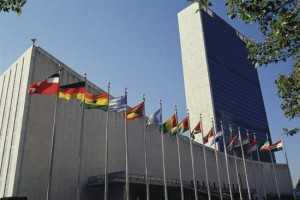Rogue UN Committee Ramps Up Pressure on Abortion
 Abortion is nowhere near becoming a human right in international law. But you would not know that from what one UN committee tells governments.
Abortion is nowhere near becoming a human right in international law. But you would not know that from what one UN committee tells governments.
C-Fam has updated a list of abuses by the committee that monitors the UN women’s treaty. The list shows over 275 instances where committee members have told countries that abortion should be legal. It builds on a previous compilation by Thomas Jacobson for Focus on the Family, and collects both official documents of the committee and oral exchanges of committee members with country delegates.
The list shows how the pressure has become more frequent and insistent since the mid 1990s when abortion groups hatched a plan to use the UN human rights system to promote abortion. The activists created a surreptitious way to push abortion by capturing the UN human rights bureaucracy by placing their ideological allies on the treaty monitoring bodies.
Of all UN human rights bodies, experts overseeing the Convention on the Elimination of All Forms of Discrimination Against Women (CEDAW) have been the most systematic in attacking laws that protect unborn children. The committee itself has come under scrutiny for controversial recommendations, like criticizing Mother’s Day as an observance that perpetuates negative stereotypes about women, or telling countries to decriminalize prostitution. But its opinions on abortion remain perhaps the most controversial.
According to the committee any criminal prohibition on abortion violates the UN convention for women, even though the convention does not mention abortion, or anything related to abortion.
No UN treaty mentions abortion or can be fairly interpreted to enshrine such a right. On the contrary, UN resolutions address the difficult issue by recognizing that countries have every right to outlaw and restrict abortion. UN member states are unable to adopt a single uniform position on the thorny problem.
Yet UN bureaucrats have released a plethora of non-binding pseudo-legal interpretations and opinions over the last two decades assuming abortion is a woman’s right. While these documents are mostly ignored by governments and media, and remain obscure in the UN itself, they constitute the arsenal that the global abortion lobby pitches at national laws that protect unborn children. The documents do not represent agreement by countries that make up the UN and have no value in establishing international norms, however, they appear to carry the UN seal and have been found persuasive by a few foreign courts.
Several provisions in UN treaties presume laws should protect unborn children, though they may fall short of guaranteeing the right to life of unborn children. The San Jose Articles, prepared by international law and health experts, denounce abortion groups’ abuse of the UN human rights system.
The General Assembly recently concluded a three-year process to evaluate and reform the UN treaty body system, made up of nine committees, similar to the CEDAW committee. One frequently voiced complaint against the treaty bodies is their interpretations are too expansive and not based on the text of the treaty.
From the outset, treaty bodies, unaccustomed to any oversight, resisted the efforts at reform. For over two decades they carried out their work without oversight from the General Assembly. This past spring, the General Assembly adopted a resolution in which it commits to monitor the work of the committees.

